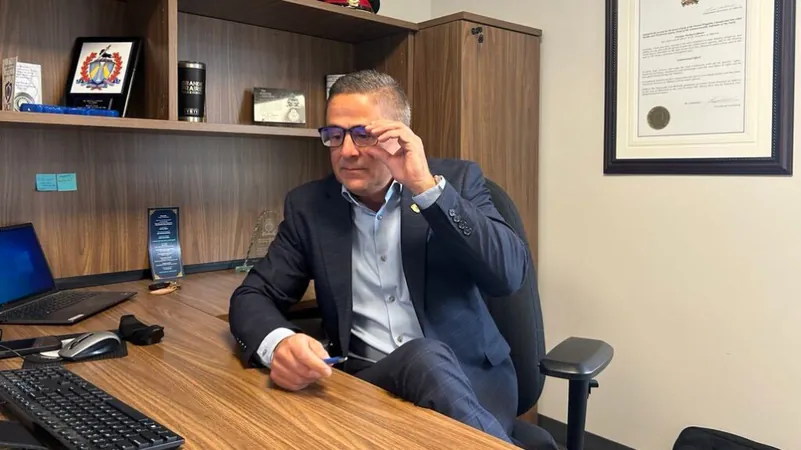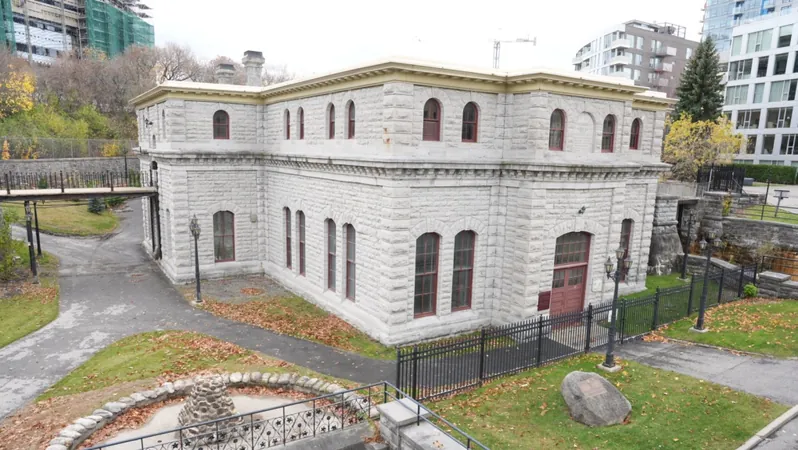
A Bold New Era: Grande Prairie's Innovative Police Force Sparks National Interest
2024-11-04
Author: Benjamin
GRANDE PRAIRIE, Alta. - In an unassuming office building with mismatched carpets and a humble setting, the chief of the newly formed Grande Prairie municipal police service is leading a transformative approach to law enforcement.
Dwayne Lakusta, now 51, was appointed to oversee this groundbreaking police service last year, marking the first establishment of a new police force in Alberta in over six decades, as the city of 60,000 residents moves on from the RCMP. Until the full integration is complete by 2028, the RCMP will still oversee local policing.
Lakusta brings three decades of law enforcement experience to the table. He aims to implement a policing model informed by extensive research suggesting that police should be more attuned to community needs, particularly those of younger residents. This innovative approach will include a combination of enforcement officers and mobile outreach workers.
In Lakusta's words, "It's a holistic approach toward community safety and well-being." For instance, rather than dispatching armed officers to handle sensitive situations like suicide calls, the police will send mental health professionals capable of providing the necessary support. This shift not only reflects a modern understanding of community policing but could redefine the public's interaction with law enforcement.
Mayor Jackie Clayton emphasizes the significance of this initiative, explaining, "It’s an opportunity for us to do something unique... a template for other municipalities looking to transition." Her sentiment is echoed by Councilor Dylan Bressey, who notes that discussions about moving away from the RCMP began in 2018, with the realization that many RCMP contracts nationwide would be expiring by 2032. The decision to cancel the RCMP contract was not without emotional weight, given the historical significance of the Mounties to Canadian identity.
Despite some dissent—particularly from Councilor Chris Thiessen, who voted against the transition to advocate for more public discourse on the matter—there is cautious optimism regarding the projected financial implications of the new service. Preliminary analyses suggest that the new model might yield savings primarily through reduced administrative costs.
The national implications of Grande Prairie's decision are significant, drawing the attention of other municipalities in Alberta, including Red Deer, Airdrie, and Spruce Grove, as well as a locality in Nova Scotia, all contemplating similar transitions. Meanwhile, Surrey, B.C., grapples with complications in its attempts to switch from the RCMP to a local force, with taxpayer concerns and legal challenges illustrating the complexity of such a shift.
Lakusta remains optimistic about the potential of starting fresh in Grande Prairie, believing it allows for the establishment of a community-focused police service "with no baggage." Building trust with residents, he asserts, is paramount.
As this innovative model unfolds, all eyes are on Grande Prairie, eagerly anticipating whether this new approach to policing could reshape community-law enforcement relations across Canada.









 Brasil (PT)
Brasil (PT)
 Canada (EN)
Canada (EN)
 Chile (ES)
Chile (ES)
 España (ES)
España (ES)
 France (FR)
France (FR)
 Hong Kong (EN)
Hong Kong (EN)
 Italia (IT)
Italia (IT)
 日本 (JA)
日本 (JA)
 Magyarország (HU)
Magyarország (HU)
 Norge (NO)
Norge (NO)
 Polska (PL)
Polska (PL)
 Schweiz (DE)
Schweiz (DE)
 Singapore (EN)
Singapore (EN)
 Sverige (SV)
Sverige (SV)
 Suomi (FI)
Suomi (FI)
 Türkiye (TR)
Türkiye (TR)